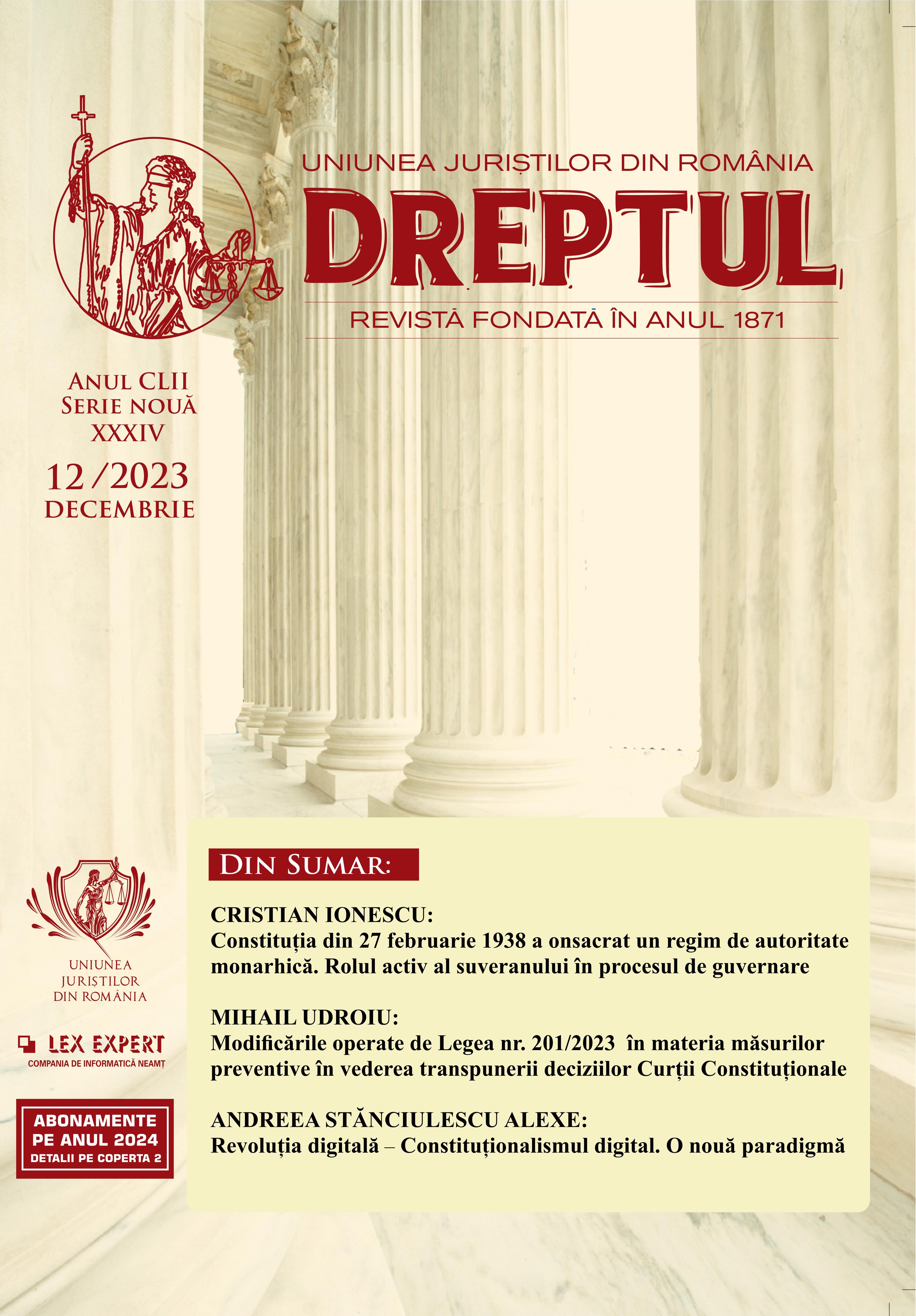Revoluția digitală – Constituționalismul digital. O nouă paradigmă
Digital revolution – Digital constitutionalism. A new paradigm
Author(s): Andreea Stănciulescu AlexeSubject(s): Constitutional Law
Published by: Uniunea Juriștilor din România
Keywords: digital platforms; digital constitutionalism; democratic values; fundamental rights; rule of law; digital citizenship;
Summary/Abstract: In today’s era of advanced digital technology, the concept of constitutionalism is undergoing a significant transformation, leading to the emergence of what is called „digital constitutionalism”. This new field of study explores the interaction between technology and constitutional principles, assessing how digital tools and the online environment affect governance, individual rights and political structures. In this article, we explore in detail the concept of digital constitutionalism, its influences on society and the challenges it poses.Traditionally, constitutionalism is the fundamental idea that power should be limited and regulated by a constitution, which encompasses the rights and responsibilities of citizens. In the digital context, these principles extend into the online sphere, where people’s interactions and government institutions are mediated through technology.Digitalisation brings with it a number of challenges and opportunities for constitutionalism. Access to information and participation in the political process have been significantly expanded through digital platforms. This gives citizens the opportunity to voice their opinion, mobilise and influence decisions in an unprecedented way. At the same time, there is a risk that personal data could be used for unauthorised purposes or that governments could use technology to excessively survey citizens.A major challenge in digital constitutionalism is the regulation of digital platforms, where social and political interactions take place to a large extent. While these platforms provide opportunities for free expression and mobilisation, they are also able to censor content and influence public discourse. This raises questions about the balance between private control and public regulation.To preserve the integrity of digital constitutionalism, transparency and accountability in the development and deployment of technologies is essential. Decisions on algorithms, artificial intelligence and content filtering must be considered in the context of democratic values and fundamental rights.
Journal: Revista „Dreptul”
- Issue Year: 2023
- Issue No: 12
- Page Range: 103-119
- Page Count: 17
- Language: Romanian
- Content File-PDF

